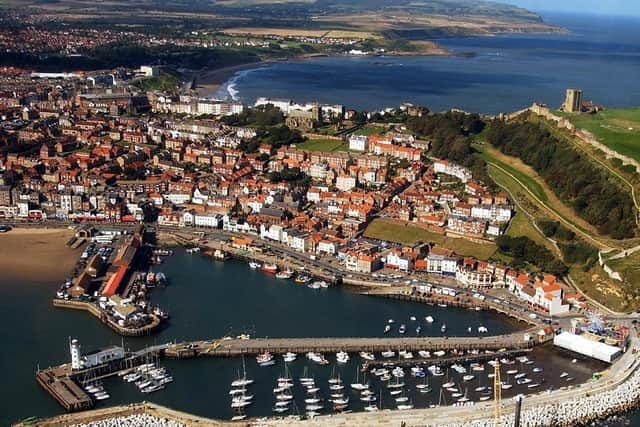Scarborough and coastal communities need long-term investment to reverse historic deprivation and inequalities, report says
and live on Freeview channel 276
Household income is almost £3,000 per year lower than in non-coastal areas and nearly one in five jobs pay below the living wage, the study says.
Poorer transport, broadband connections, health and education are also highlighted.
Advertisement
Hide AdAdvertisement
Hide AdThe report was commissioned by five councils, the Coastal Partnership Network, the Local Government Association Coastal Special Interest Group and the Coastal Communities Alliance.


The Government said its £2.1bn Levelling Up funding – announced in January, when Scarborough missed out on more than £50m – continues to support coastal economies.
‘Hidden’ deprivation
The Communities on the Edge report warns that the Government’s Levelling Up policy focus on cities or regions means “massive challenges” faced by coastal communities become “hidden disparities” and are likely to be missed.
It says the East of England has the third-highest regional average weekly pay, despite parts of the region having some of the lowest earnings in the country.


The report found:
- A lower proportion of children achieve GCSE qualifications in maths and English, with children more likely to miss school regularly
- Coastal communities have higher rates of depression, suicide, alcohol-related hospital admissions and emergency admissions for lung diseases
- A lack of gigabit broadband connections and 4G provision has created a “digital divide”
- Fewer council homes are available, meaning people rely on private rentals where costs are higher and cars are needed due to poor public transport
- Coastal areas have lower wages due to seasonal and part-time jobs in the tourism sector or with small businesses, and costs are higher, limiting growth
Advertisement
Hide AdAdvertisement
Hide AdSome of the problems facing Britain’s coastlines “have developed over years or decades,” it added.
Challenges ‘entrenched’


Sally-Ann Hart MP, chair of the All-Party Parliamentary Group on Coastal Communities, said: “If we give our coastal communities the right focus and support the opportunities are boundless… rather than coastal communities being a problem they are actually an important resource for the United Kingdom.
“The need for long-term funding is key because our coastal communities have challenges which have become entrenched over decades – there isn’t a quick fix.”
Scarborough has the highest levels of deprivation in North Yorkshire and shorter life expectancy than England’s average, with England’s Chief Medical Officer, Chris Whitty, previously warning of the “significantly higher burden of physical and mental health conditions on the coast”.
Advertisement
Hide AdAdvertisement
Hide AdHowever, Sir Robert Goodwill, the MP for Scarborough and Whitby, said Scarborough had fared much better when compared to similar coastal resorts.


He told The Scarborough News: “Scarborough has very much bucked the trend compared to places like Blackpool or Skegness, and indeed we are seeing new hotels being built in this constituency whilst I have been the MP.
“Our unemployment levels have always been around the national average as opposed to some other coastal areas which have much worse statistics.
“With the new potash mine and other investments coming into the area I know we will continue to buck the trend, and it must be remembered that after London, Scarborough is the number one destination for visitors.”
‘Long-term funding the solution’
Advertisement
Hide AdAdvertisement
Hide AdThe report calls for the Government to support deprived areas by changing its levelling-up funding formula and help projects financially across their full lifespan, rather than for a “time-limited” period.
It says the right support “would boost growth and see coastal areas contribute far more to the wider UK economy”.
Increases in home and hybrid working are key to attracting more skilled and highly paid workers and help prevent the skills drain from coastal communities, it argues.
Additionally, money should be invested in developing year-round tourism, outside of the traditional summer season, to enable coastal areas to benefit from “huge growth in the UK’s visitor economy”.
As coastal areas are already involved in renewable energy, further investment in offshore wind farms and tidal power could create thousands of highly-skilled jobs.